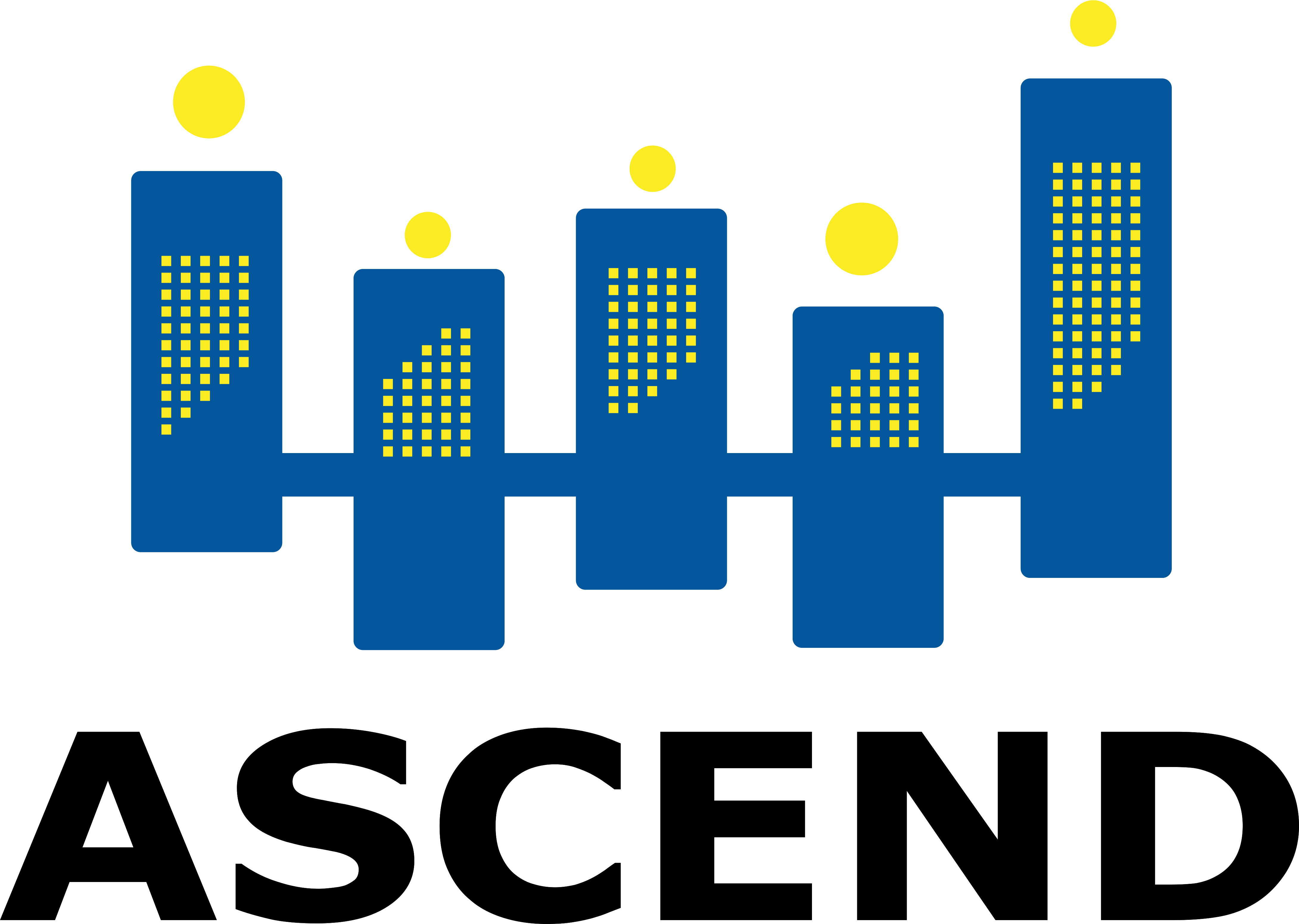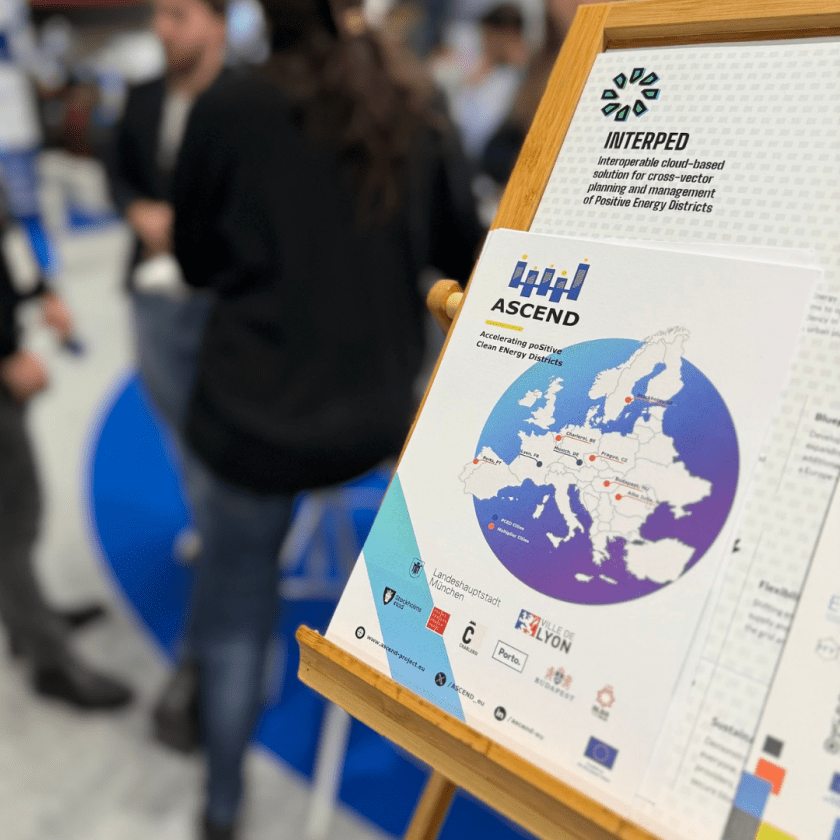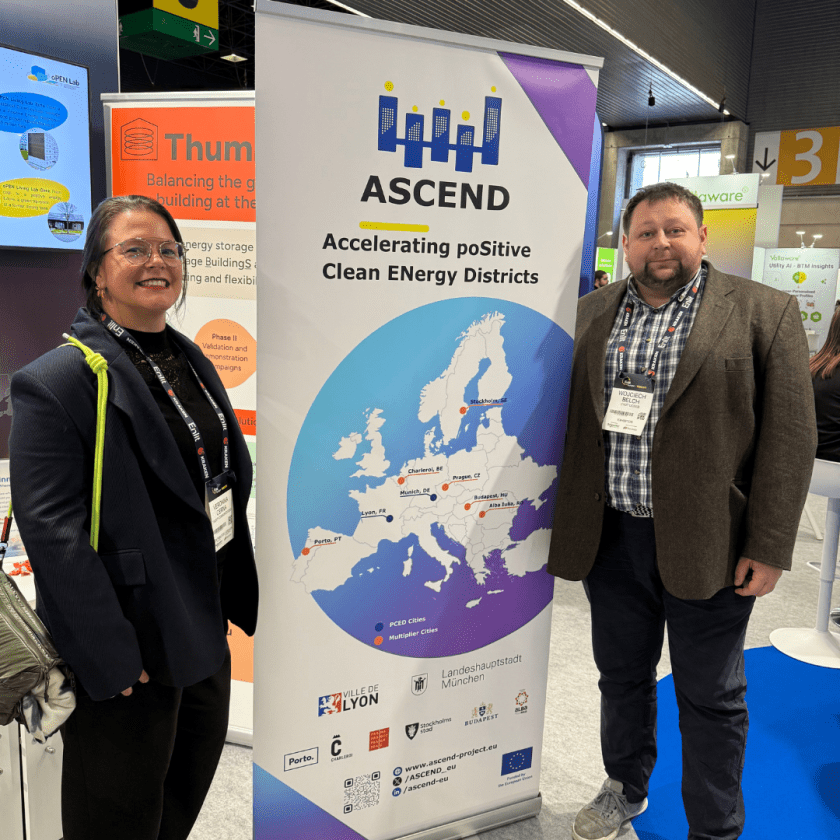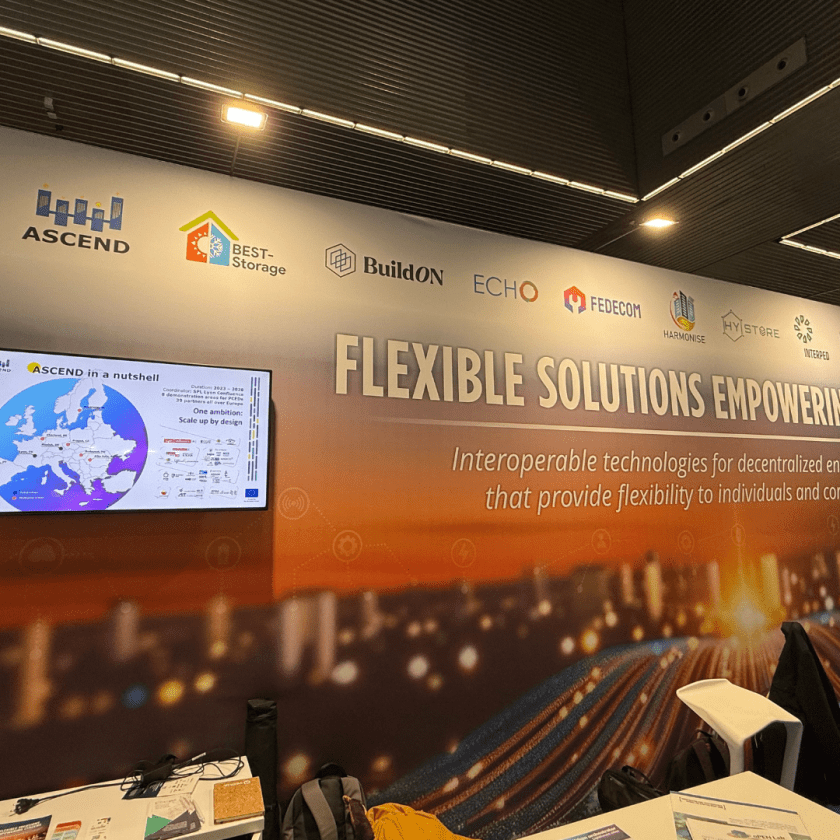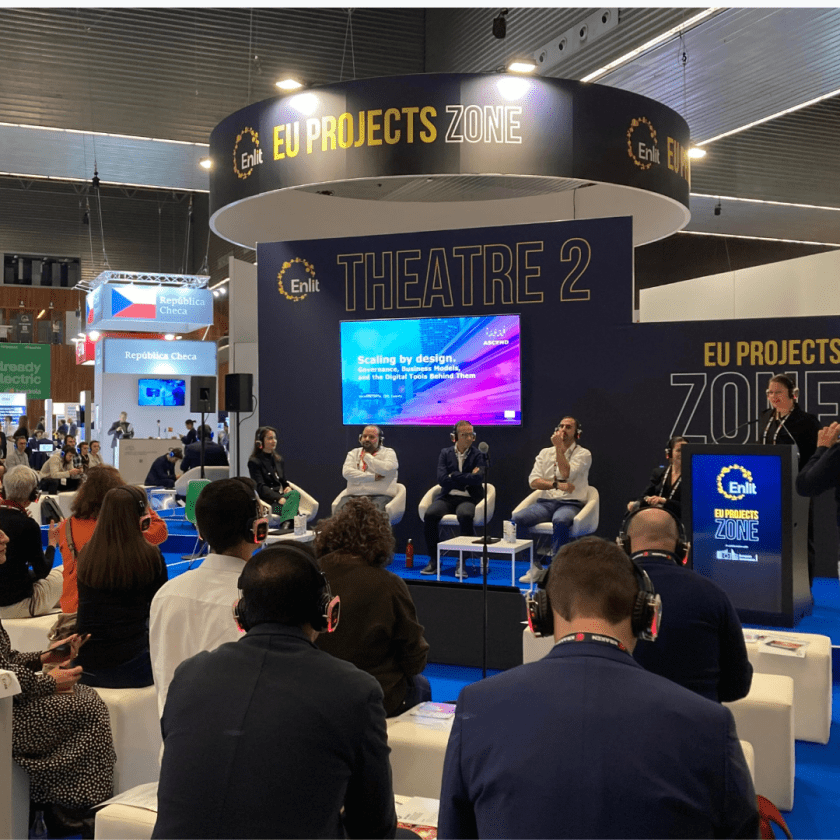ASCEND took part in Enlit Europe 2025, which brought together more than 15,000 attendees, 700+ international exhibitors, and 500 speakers in Bilbao, Spain from 18–20 November. Across high-level Summit discussions, Hub sessions, the EU Projects Zone, and networking events, the conference provided a valuable space for cities and organisations to exchange practical ideas for accelerating the energy transition. We were glad to contribute to these conversations as part of the EU Projects Zone and during the Energy & Communities session, where we shared ASCEND’s work on Positive Clean Energy Districts.
Throughout the event, many visitors stopped by our booth to learn how ASCEND is supporting the development of PCEDs in our Lighthouse Cities, Lyon and Munich and how these approaches are being multiplied in our six Multiplier Cities: Porto, Charleroi, Prague, Stockholm, Budapest, and Alba Iulia. These discussions made clear that cities across Europe are looking for ways to translate ambition into implementation, and to avoid getting stuck in small-scale pilot activities.
During the Energy Communities & PEDs session, Veronika Cerna (Twenty Communications & ASCEND) presented “Scaling by Design: Governance, Business Models and the Digital Tools Behind Them.” Her presentation focused on how ASCEND addresses the struggle to move beyond pilot projects and the role of the Urban Orchestrator..
Cities often run into three persistent challenges. First, the energy transition is complex and often involves many departments and actors, making coordination difficult. Second, even successful pilot projects often remain isolated and never expand into full districts, the familiar “pilot trap.” Third, business and financing models are often not designed for long-term, large-scale deployment. While these issues are challenging, they can be resolved through practical changes in how cities design, govern, and plan their initiatives.
One point highlighted was the need to match governance structures to the realities of each district. ASCEND’s cities work within very different contexts, from new developments to older neighbourhoods with mixed building types and each requires a different organisational model. There are several options that cities can consider, such as special purpose vehicles, cross-departmental mission teams, or citizen-led organisations. The goal in each case is to create a structure that can coordinate effectively, negotiate with partners, and keep projects moving.
The presentation also looked at the importance of scalability of business models. Pilot projects often rely on short-term funding and are difficult to replicate.t Long-term deployment requires financing models tied to ongoing value creation, whether through energy savings, shared services, local flexibility markets, or district-wide infrastructure.
The presentation also explored the role of digital tools such as the PCED Assembler, in helping cities make faster, more confident decisions. By using a digital sandbox in the PCED Assembler, cities can test different governance setups, compare investment paths, and explore risks without immediately committing resources. This approach encourages collaboration across departments and helps cities shift from static planning to dynamic, stress-tested models.
The session also discussed other PED and PCED aspects and included valuable contributions from Gorka Naveran Lanz (FEDECOM), Christos Korkas (Harmonise), Ruben Garcia Pajares (NEUTRALPATH), and Lorena Sanchez Relaño (InterPED). Their experiences reinforced that while each city’s situation is unique, many share the same obstacles and that exchanging knowledge across projects is essential for speeding up replication.
Overall, Enlit Europe 2025 provided an important opportunity to reflect on what it truly takes for cities to scale their energy transition efforts. For ASCEND, it was a chance to show how combining the right governance, business models, and digital tools can help cities move from small pilots to sustainable, Positive Clean Energy Districts. We left the event encouraged by the strong interest in this approach and look forward to continuing to support cities as they advance on their transition pathways.
